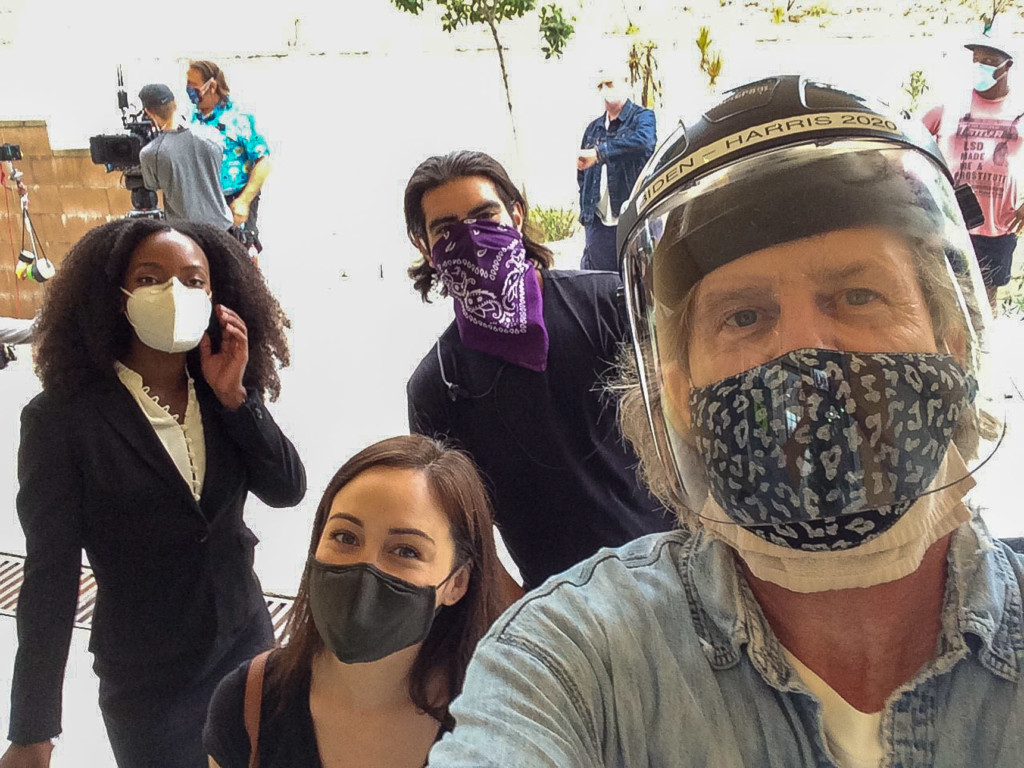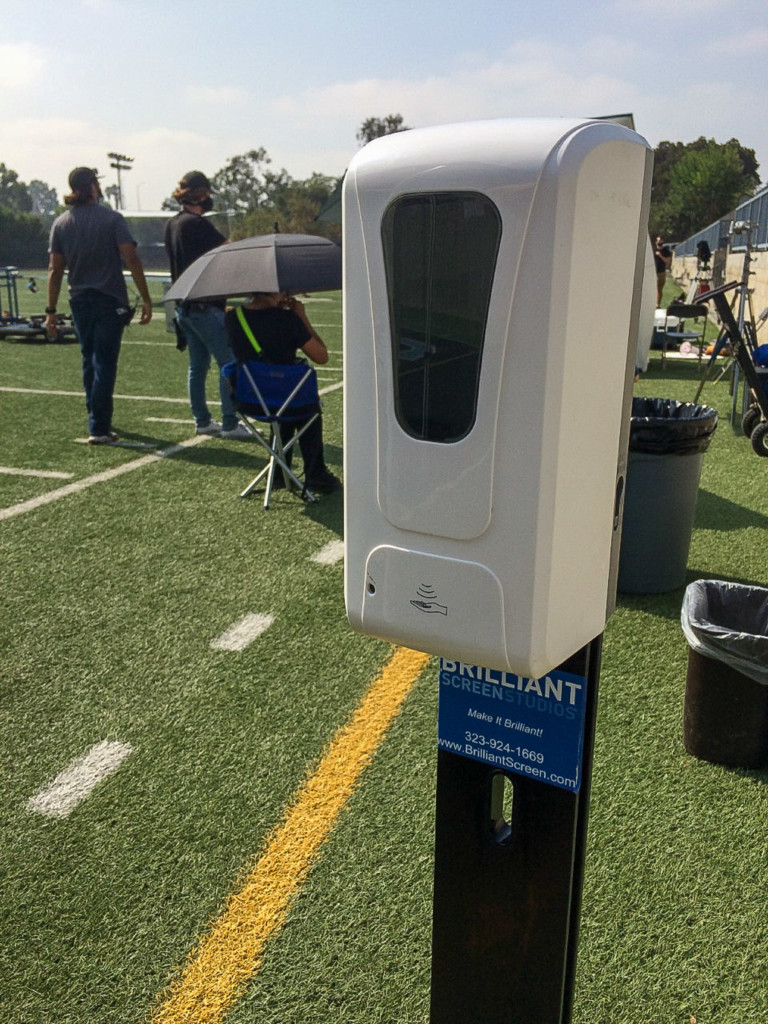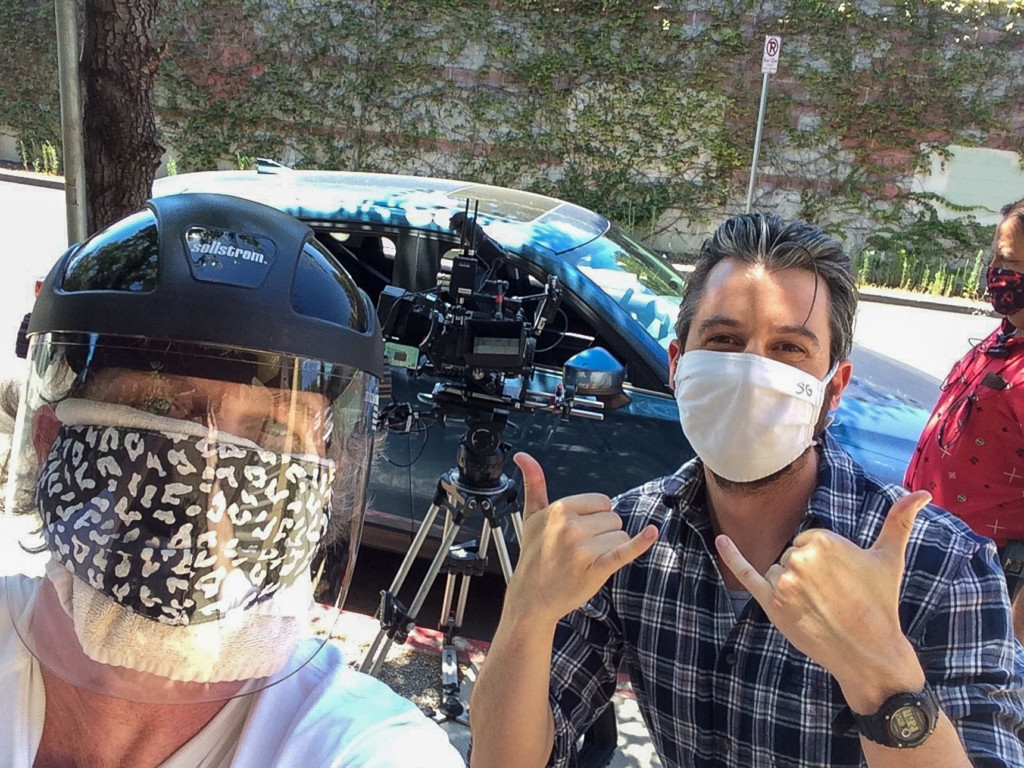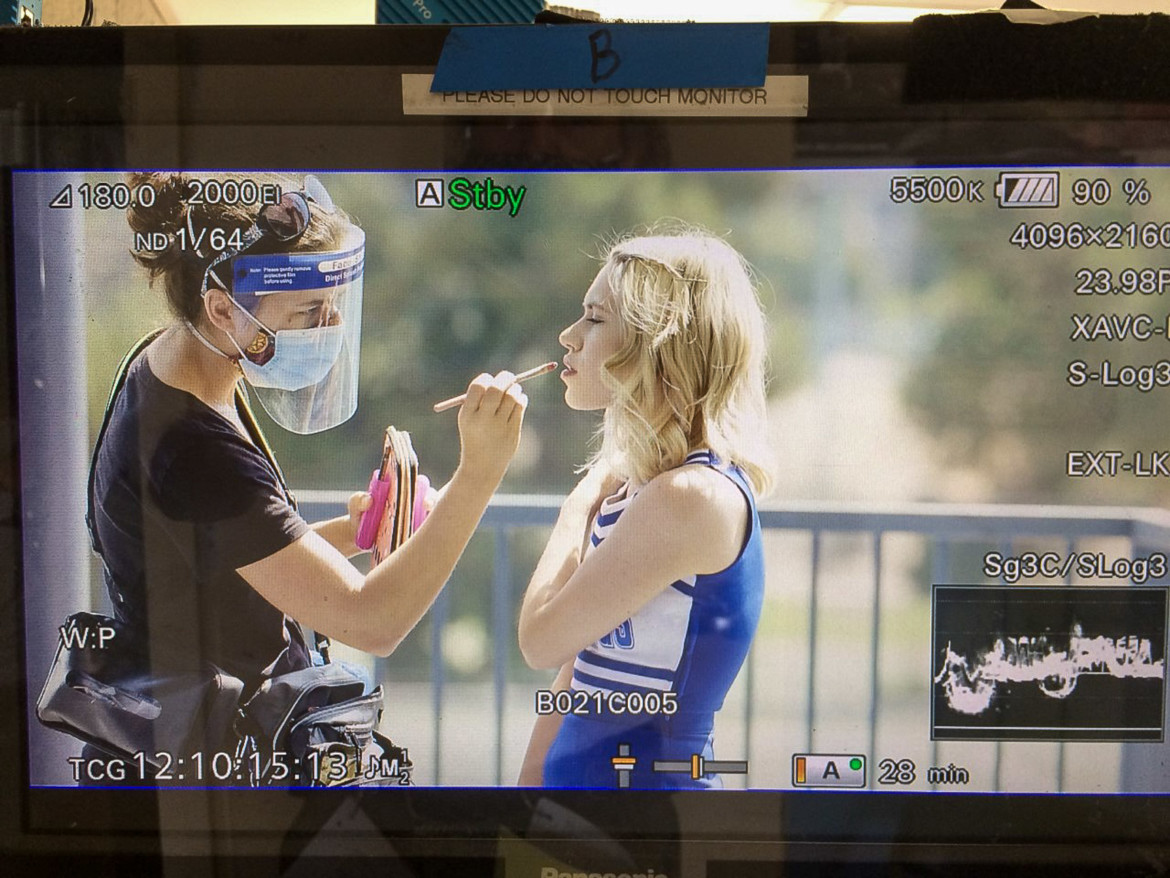By Greta Chiocchetti
By now, we’ve become accustomed to socially distancing from each other— so much so, that it may be jarring, even if just for a split second, to see actors on TV and in film interacting without masks and six feet between them. Throughout this time, those depictions of our longed-for human connection have offered a momentary escape.
But what does it take to actually produce the art that sustains us, especially when film and TV, by default, typically require a large gathering of cast and crew?
With some quick thinking and creative tweaks, School of Motion Pictures and Television (MPT) instructor and film director Doug Campbell, along with his producer and line producer, found a way to do just that. When concerns over the rapidly-spreading coronavirus shut down the set of “Healer,” a feature film coming in 2021 that he was scheduled to direct this past March, Campbell and team implemented strict procedures to keep the cast and crew safe—ensuring that the show would go on.
“Nobody should be making a movie the traditional way during a pandemic, period,” Campbell said. “But if you must shoot a movie during a pandemic, I’m tremendously proud of the safety precautions we are employing to keep everybody safe.”

Filming for “Healer” was just beginning when producer Robert Ballo notified the cast and crew that production would come to a halt, in line with the state of California’s shelter-in-place mandate. Though the future of the film—and the world, frankly—seemed uncertain for the next few months, by June it was deemed safe to return to set as cases had begun to stabilize across the state.
Staying safe on set
Rene Peraza, a 2019 MPT graduate, was a production assistant on set for both “Healer” and “Cheerleader Hit Squad,” another film that Campbell directed later this summer, and was responsible for coordinating with the set’s designated COVID Safety Officer to ensure all precautions were being taken. From making sure everyone had their masks on at all times to setting up individually plastic-wrapped catering, Peraza took the challenge of working during a pandemic in stride.
“There was definitely a learning curve in the beginning with all of the precautions, because unfortunately, this virus is really contagious, so you really have to think about all of the details,” said Peraza. “But I was really excited for the opportunity to go back on set and return to some sort of normal.”
In addition to following the CDC’s guidance of encouraging frequent hand-washing, social distancing, and mask-wearing, the size of the cast and crew was significantly reduced to 16. Catered meals were individually wrapped in plastic to avoid contamination; dressing rooms, offices, and bathrooms were sprayed regularly with industrial-grade disinfectant; actors were asked to do as much of their own makeup as possible at home. Campbell also redesigned all of the remaining scenes of “Healer,” so they could be shot with the actors socially distanced as much as possible.

“We used lock-offs and post-production wizardry to make it seem as if actors were in close proximity, even though they were quite far apart,” said Campbell, who also completely rewrote the script of “Cheerleader Hit Squad” to be filmed entirely outdoors.
“Fortunately, the story—a high school movie—organically lent itself to be filmed completely outdoors,” said Campbell. “But per my rewrite, there was no physical touching between the characters. Try to do a high school movie about romance and not have your characters kiss… well, we did it!”
Campbell, who has directed 39 feature films to date and written or co-written 28 of them, says his experience as a working screenwriter allowed him to make necessary last-minute changes to the script that otherwise would have substantially delayed production.
From networking to opportunities
In his 10 years of teaching at the Academy, Campbell has helped dozens of MPT students network and find industry opportunities.
“The [Academy] actors I’ve hired are a) naturally gifted and b) so well-trained by our terrific acting instructors, I don’t have to do much except call ‘action’ and ‘cut,’” Campbell said.
For School of Acting (ACT) graduate Mark Haptonstall (2013), who was cast as the character Kyle in “Healer,” working with Campbell has been a goal for years.
“I would take any film audition that Doug sent my way because I trust him so much,” said Haptonstall, who was in two of Campbell’s classes during his time at the Academy.
Haptonstall got his start in the Bay Area theatre scene before moving to Los Angeles. He shared that it was the Academy’s state-of-the-art facilities and industry-professional instructors that prepared him for the real world.
“You really have no idea how much you benefit from taking those classes until you’re working professionally on set,” said Haptonstall. “The first time I was on a professional stage, it felt like home, because I had those as my classroom.”
Shannon Skiles, a 2018 ACT graduate who was cast as Theresa in “Cheerleader Hit Squad,” said that she walked away from the experience with newfound confidence—and with a drive to keep the momentum going.
“Doug takes every opportunity to teach you something while you’re on set,” said Skiles. “I learned so much and got to explore the role of kind of a villain, which was something I was nervous about initially… I’m even more motivated to keep it moving forward and take on more projects.”

Sean Gunnell, who graduated from ACT in 2013, said that despite the unusual circumstances, working on set with Campbell was a rewarding—and educational—experience.
“I felt, going in, that the way Doug was handling it, we were all going to be in such safe hands,” said Gunnell, who played a supporting role in the film. “And even beyond the COVID precautions, he’s an ideal director to work with. He welcomes any and all energy to make each film the best it can be—even better than what is written on the page. Working with him and being on this film was the highlight of my year.”
Gunnell, who has been forging his path into the industry through projects both in Los Angeles and the Bay Area, said that acting students should be in it for the long haul and focus on constantly refining their craft, not chasing money or fame as an end goal.
“It takes a lot of ugly work, it takes a lot of struggle,” said Gunnell. “It takes a lot of working with people not for the sake of a big paycheck, but for the sake of belief in the story, belief in the artists, and to build something more that is not with the intention of we’re going to make a great film, but with the intention of let’s tell an honest story.”
